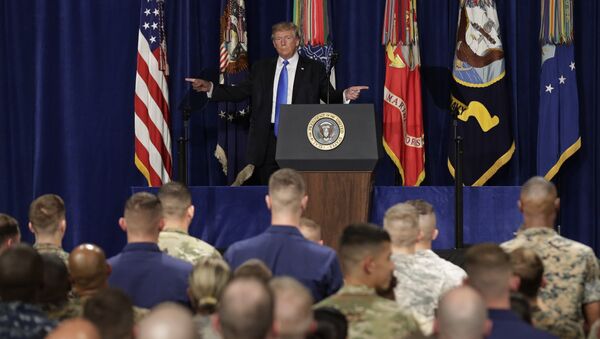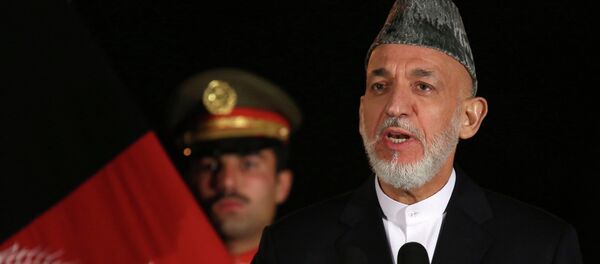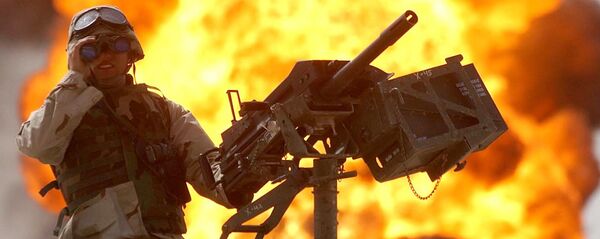The United States will never resort to its armed forces to establish democracy in other countries and will not dictate to other people, including the Afghan people, how to live or how to govern their own complex societies; this is what US President Donald Trump said on Monday in Fort Myer in Arlington, Virginia, while revealing the renewed US strategy for Afghanistan and Central Asia.
Sputnik Radio discussed the president’s speech with James Dorsey, a senior fellow at the S. Rajaratnam School of International Studies in Singapore and a veteran, award-winning foreign correspondent.
"Obviously Trump was elected on the domestic agenda and obviously Trump's major focus is on maintaining this support base. And his support base expects him to deliver on domestic issues: health care, where he has failed so far, tax reforms, infrastructure," James Dorsey told Sputnik.
He further noted that therefore Donald Trump is apparently not inclined to be a global leader, and thus "he is getting a much more defused distribution of power."
"That is why he is getting vacuums, which are being filled by others, but not necessarily wholly, and which are viewed by all kind of players for good or for bad. This could lead to various serious consequences," he elaborated.
The idea to fight against such groups as the Taliban or the Islamic State (Daesh) exclusively with military influence, simply crushing or obliterating them, he said, ignores the fact that such political violence arises from social, economic and political problems.
"Therefore unless you embed a military strategy in an approach which also tackles those problems, you are unlikely to succeed," he explained.
Commenting on how this new approach will fit into President Trump's policy towards Syria, James Dorsey noted that the US leader had already made himself clear: Syria for him is fighting political violence and military jihadist groups and not seeking the ousting of President Assad in the first place.
James Dorsey also noted that many say that Donald Trump is unpredictable in his foreign policy and is using barbaric language. However he is following a certain pattern: he does believe fundamentally in military force as a tool and he is surrounded by generals who have a very realistic assessment of what you can do with such a tool, how much force you will need and how to apply it.




